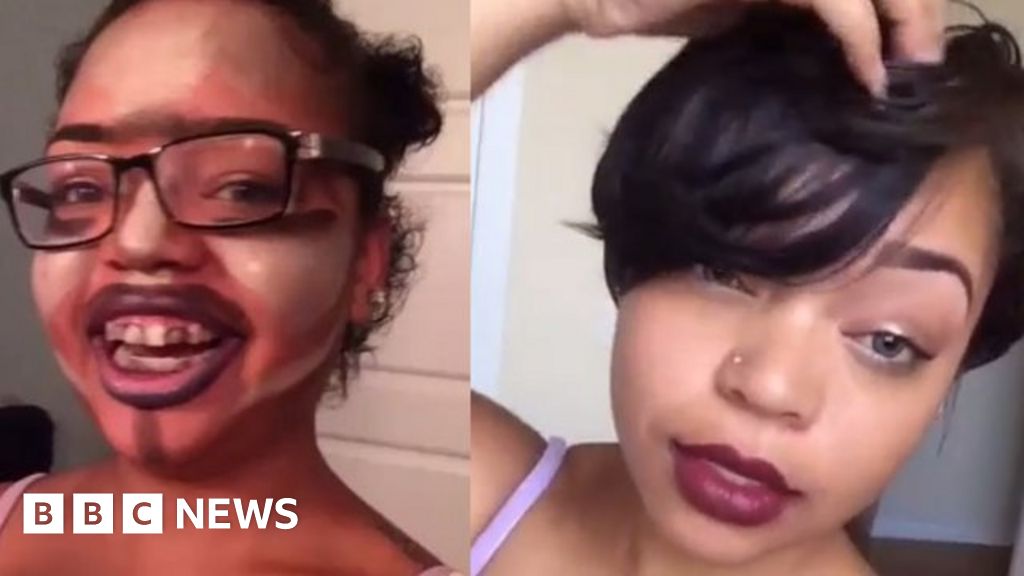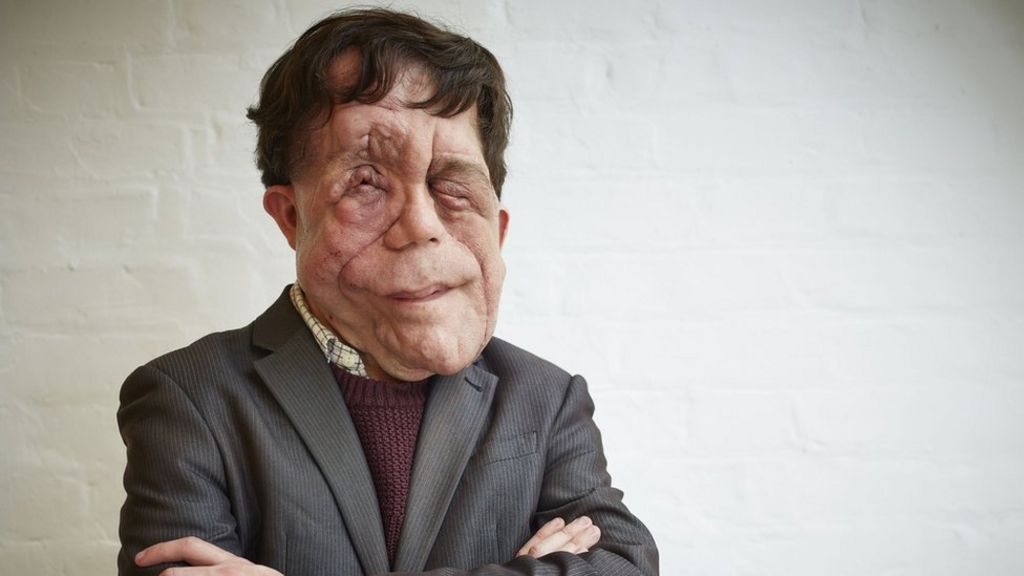Exploring The World Of Ugly People: A Journey Beyond Stereotypes
You’ve probably come across the term “ugly people in the world,” and it’s time we dive into this topic with an open mind. It’s not about judgment or negativity; it’s about understanding diversity, breaking stereotypes, and celebrating what makes everyone unique. In a world obsessed with beauty standards, it’s crucial to explore the other side of the spectrum and redefine our perception of beauty. So, buckle up because we’re about to embark on a fascinating journey!
Let’s face it, the media and society often bombard us with images of so-called “perfect” people. But what about the rest? The ones who don’t fit into those narrow beauty standards? Are they any less valuable? Absolutely not! This article will challenge your preconceived notions and help you see the world through a different lens.
Here’s the deal: beauty is subjective, and labeling someone as “ugly” is not just unfair but also deeply flawed. In this article, we’ll explore the concept of ugliness, how it’s perceived globally, and why it’s time to change the narrative. So, let’s get started and uncover the truth behind the phrase “ugly people in the world.”
Read also:Cheri Oteri Husband The Untold Story Behind The Woman Who Stole Our Hearts
Table of Contents
- Defining Ugly: What Does It Really Mean?
- Cultural Perception of Ugliness
- The Role of Media in Shaping Beauty Standards
- Ugly Celebrities: Breaking the Mold
- A Scientific Perspective on Ugliness
- Statistics About Ugly People in the World
- Real-Life Stories of Ugly People
- Ugly People in History: Forgotten Heroes
- Embracing Diversity: Why Ugly People Matter
- Conclusion: Redefining Beauty
Defining Ugly: What Does It Really Mean?
So, what exactly does “ugly” mean? If you look it up in the dictionary, you’ll find that it’s defined as something displeasing to the eye or lacking aesthetic appeal. But here’s the thing: beauty is subjective, and what one person finds ugly, another might find fascinating. Let’s break it down a bit further:
- Ugly doesn’t always equate to physical appearance. Sometimes, it’s about personality flaws or actions that are considered unattractive.
- Cultural and societal norms heavily influence our perception of ugliness.
- Labeling someone as ugly can have serious psychological effects, leading to low self-esteem and social isolation.
Let’s not forget that the word “ugly” itself has evolved over time. In the past, it might have been used to describe physical deformities or disabilities. Today, it’s often used more loosely, but the impact remains the same.
Why Do We Care About Ugliness?
We care because it affects how we see ourselves and others. The obsession with beauty has created a culture where people feel the need to conform to certain standards. But what happens to those who don’t fit in? They’re often marginalized and overlooked. It’s time to change that narrative and celebrate diversity in all its forms.
Cultural Perception of Ugliness
Every culture has its own set of beauty standards, and what’s considered ugly in one place might be seen as beautiful in another. For example, in some African tribes, elongated necks are seen as a sign of beauty, while in Western societies, they might be considered unusual. Let’s explore some cultural differences:
- In Japan, pale skin is often associated with beauty, while tanned skin might be seen as less desirable.
- In some Middle Eastern countries, full lips and curvy figures are celebrated, whereas in other parts of the world, slim figures are the norm.
- Body modifications, such as scarification or tattoos, are seen as beautiful in certain cultures but might be considered ugly elsewhere.
These differences highlight the importance of understanding cultural context when discussing beauty and ugliness. It’s not a one-size-fits-all concept.
Breaking Cultural Stereotypes
Breaking free from cultural stereotypes is crucial if we want to create a more inclusive society. By embracing diversity and celebrating different forms of beauty, we can reduce the stigma associated with being labeled as “ugly.” It’s all about changing the conversation and focusing on what truly matters: inner beauty and character.
Read also:Kat Wonders Nude Pics A Comprehensive Look At The Truth Behind The Headlines
The Role of Media in Shaping Beauty Standards
The media plays a massive role in shaping our perception of beauty and ugliness. From magazines to social media, we’re constantly bombarded with images of “perfect” people. But here’s the kicker: these images are often manipulated through editing software, filters, and airbrushing. What you see isn’t always real.
Let’s take a look at some statistics:
- 80% of women in the U.S. admit to feeling insecure about their appearance after comparing themselves to images on social media.
- Studies show that exposure to idealized images can lead to body dissatisfaction and eating disorders.
- Men are also affected, with many feeling pressured to conform to unrealistic body standards.
It’s time for the media to take responsibility and promote a more realistic and inclusive image of beauty. By showcasing diverse models and celebrities, they can help break down the barriers that separate “beautiful” from “ugly.”
Media and Mental Health
The impact of media on mental health cannot be overstated. When people constantly compare themselves to unattainable standards, it can lead to anxiety, depression, and low self-esteem. It’s crucial for individuals to recognize that these images are often curated and manipulated, and they don’t reflect reality.
Ugly Celebrities: Breaking the Mold
You might be surprised to learn that some of the most successful celebrities in the world have been labeled as “ugly” at some point in their lives. Take Charlize Theron, for example. Despite being one of the most beautiful women in Hollywood today, she was told as a child that she wasn’t pretty enough to be a model. Or consider Danny DeVito, whose unique appearance hasn’t stopped him from becoming one of the most beloved actors in the industry.
Here’s a table of some famous “ugly” celebrities:
| Name | Profession | Notable Achievements |
|---|---|---|
| Charlize Theron | Actress | Oscar winner for her role in "Monster" |
| Danny DeVito | Actor | Known for roles in "Taxi" and "Batman Returns" |
| Quvenzhané Wallis | Actress | Youngest Oscar nominee for "Beasts of the Southern Wild" |
| Gary Oldman | Actor | Oscar winner for his role in "Darkest Hour" |
These individuals prove that being labeled as “ugly” doesn’t define your worth or potential. It’s all about embracing who you are and pursuing your dreams with passion and determination.
Lessons from Ugly Celebrities
What can we learn from these celebrities? First, never let anyone else’s opinion of you dictate your self-worth. Second, focus on your talents and abilities rather than your appearance. And finally, be proud of who you are, flaws and all.
A Scientific Perspective on Ugliness
From a scientific standpoint, ugliness is often linked to evolutionary biology. According to some researchers, humans are naturally drawn to symmetrical faces because they indicate good health and genetic fitness. However, this doesn’t mean that asymmetrical faces are inherently ugly. It’s all about perception and context.
Here are some interesting scientific findings:
- Studies have shown that people with “average” faces are often perceived as more attractive than those with extreme features.
- Research suggests that kindness and personality can enhance physical attractiveness, regardless of traditional beauty standards.
- Our perception of beauty is influenced by a combination of genetics, culture, and personal experiences.
While science can provide some insights into why we perceive certain traits as ugly, it’s important to remember that beauty is ultimately subjective. What one person finds unattractive, another might find fascinating.
The Psychology of Ugliness
From a psychological perspective, being labeled as “ugly” can have lasting effects on a person’s mental health and self-esteem. It’s crucial for individuals to develop a strong sense of self-worth that isn’t tied to their appearance. Therapy and support groups can be helpful for those struggling with body image issues.
Statistics About Ugly People in the World
While there aren’t specific statistics about the number of “ugly people” in the world, there are some interesting data points related to beauty and appearance:
- According to a survey, 56% of women and 45% of men feel pressure to look good all the time.
- Research shows that people with attractive faces are often perceived as more intelligent, trustworthy, and successful.
- The global beauty industry is worth over $500 billion, highlighting the societal obsession with appearance.
These statistics reveal the extent to which appearance plays a role in our lives. It’s important to recognize that these pressures are often external and don’t define a person’s true worth.
Why Do Statistics Matter?
Statistics help us understand the broader societal impact of beauty standards. By analyzing data, we can identify trends and work towards creating a more inclusive and accepting world. It’s all about using information to drive positive change.
Real-Life Stories of Ugly People
Let’s take a moment to hear from real people who have been labeled as “ugly” and how they’ve overcome those challenges. These stories are powerful reminders that beauty comes in all shapes and sizes.
Meet Sarah, a 28-year-old woman from New York. Growing up, she was constantly teased for her acne and curly hair. But instead of letting those comments define her, she embraced her unique features and became a successful fashion designer. “Being different is what makes me stand out,” she says. “I wouldn’t change a thing.”
Then there’s Mark, a 35-year-old teacher from London. He was told as a child that he wasn’t handsome enough to attract a partner. But he proved everyone wrong by finding love with a woman who adores him for who he is. “Beauty isn’t just skin-deep,” he explains. “It’s about how you treat others and the kind of person you are.”
What Can We Learn from These Stories?
These stories teach us the importance of self-acceptance and resilience. By embracing our unique qualities, we can overcome societal pressures and live authentic lives. It’s all about finding beauty in the unexpected places.
Ugly People in History: Forgotten Heroes
Throughout history, there have been countless individuals who were considered “ugly” by the standards of their time but went on to achieve great things. Take Abraham Lincoln, for example. He was often mocked for his tall, lanky appearance, but that didn’t stop him from becoming one of the most revered presidents in American history.
Or consider Florence Nightingale, whose plain appearance didn’t hinder her from revolutionizing the field of nursing. These historical figures remind us that true greatness isn’t defined by physical appearance but by character and achievements.
Why Do These Stories Matter?
These stories matter because they challenge the notion that beauty is the most important quality a person can possess. By celebrating the accomplishments of “ugly” people in history, we can inspire future generations to focus on what truly matters.
Embracing Diversity: Why Ugly People Matter
In a world obsessed with beauty, it’s easy to forget that diversity is what makes us unique. By embracing all forms
Article Recommendations


